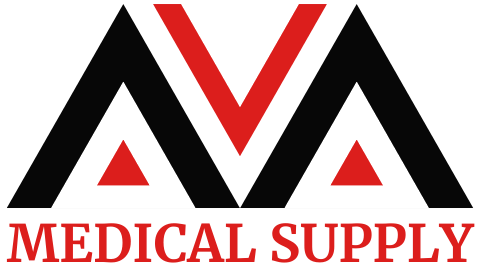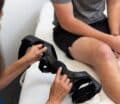
Introduction
You’ve probably heard the term “DME license” if you run a clinic, telehealth service, or medical office and want to expand your services through dropshipping or sales of durable medical equipment (DME). But what exactly is it and why is it important? In today’s healthcare environment compliance is more t han just a requirement, its the backbone of growth, trust, and uninterrupted billing with private payers and Medicare.
A DME license is a legal authorization allowing clinics or businesses to sell and bill for durable medical equipment (braces, CPAPs, crutches, infusion pumps, etc.) particularly when working with Medicare or private insurers. This license, along with federal and state-level registrations, enables providers to operate legally within a highly regulated space.
What Qualifies as Durable Medical Equipment (DME)?
Included in durable medical equipment are:
• Orthopedic braces with L-codes
• Walkers and wheelchairs
• Hospital beds
• CPAP machines and respiratory devices
• Infusion pumps
• Negative Pressure Wound Therapy (NPWT)
• Pressure-relieving mattresses
These items support long-term or in-home recovery and are commonly covered under Medicare Part B
What is a DME License?
Providers can distribute, bill, and sell for DME with a DME license. The following are necessary requirements for clinics:
• National Provider Identifier (NPI)
• DMEPOS Accreditation (via BOC, AHCA, or NABP)
• State DME licenses (where applicable)
• Surety Bond (typically \$50,000 as mandated by CMS)
• Business license and local tax permits
Licenses are issued under federal and often state guidelines, including site inspections and ongoing compliance reviews.
Why a DME License Is Essential for Dropshipping
In a B2B dropshipping model (like with Ava Medical Supply), the licensed clinic submits patient data and receives reimbursement—while the supplier fulfills the order directly to the patient. Your clinic remains the “supplier of record.”
Without a valid DME license:
• Medicare and most private insurers will reject claims
• Risk of fines, audits, and criminal penalties increases
• You cannot partner with PDAC-approved dropshipping vendors
• Your NPI may be flagged or terminated
This license ensures legal compliance, billing eligibility, and patient safety.
Who Needs a DME License?
Any healthcare entity distributing DME requires a license even if using a dropship model. This includes :
• Orthopedic clinics
• Chiropractors and physical therapy offices
• Telemedicine and virtual care providers
• Pain management practices
• General family clinics
Even if you don’t carry physical inventory, you’re still accountable as the billing entity.
The Licensing Process: Step-by-Step Guide
1. Enterprise Formation
• Create a corporation or LLC.
• Contact IRS for an EIN.
• Submit applications for sales tax permits and business licenses.
2. NPI Registration
• Apply via the National Plan and Provider Enumeration System (NPPES)
3. Accreditation from DMEPOS
• Select from the ACHC, BOC, NABP, or TCT bodies approved by CMS
• Conduct an inspection, train staff, and evaluate policies
4. Surety Bond Filing
• A \$50,000 bond is required per CMS regulation
5. Medicare Enrollment
• Submit CMS Form 855S through PECOS
• Pass an on-site inspection
6. License from the state, if necessary
• States like Florida, Texas, and California require separate licenses.
• Some also require registration with the pharmacy board or foreign certification.
7. Medicaid Enrollment
• Even for DME billing, states frequently require a separate Medicaid enrollment.
8. Insurance Requirements
• Maintain liability insurance and workers’ comp coverage
The entire process may take 2–5 months, depending on your location.
What Will Happen If You Do Not Possess a DME License?
Risks and penalties include:
• Medicare and private insurers denied claims
• Audits and investigations under regulations
• Civil penalties or criminal ones
• Loss of billing authority
• A damaged reputation and a loss of patient confidence
Common Misconceptions :
• Dropshippers don’t need licenses.” ✗ False
• “Only hospitals need DME licensing.” ✗ False
• “A DMEPOS accreditation is enough.” ✗ False
Licensing is non-negotiable if you’re billing under your NPI.
Compliance Best Practices:
• Track license renewal dates (often annual or biannual)
• Maintain up-to-date business and tax registrations
• Stay current on policy updates from CMS and state boards
• Perform self-audits every 6–12 months
How Ava Medical Supply Supports Licensed Clinics
Ava Medical Supply, a PDAC-approved supplier, provides:
• Orthopedic products and braces that are Medicare-compliant and L-coded
• Pre-filled templates for documentation to cut down on errors
• Safe and quick delivery to patients in all 50 states
• Exclusive account assistance for licensed clinics
• DME licensing assistance and regulatory guidance
Key Learnings:
• Equipment distribution and billing require DME licensing, even for dropshipping
• Licensing necessitates federal and occasionally state compliance
• Accreditation and surety bonding are non-negotiable
• Clinics can use Ava to stay compliant, efficient, and focused on their patients.
FAQs
It could be. Even for providers of telehealth or remote care, many states require licensure.
Licensing includes accreditation. In addition, you will require enrollment in Medicare, bonding, and possibly state approval.
You still require a permit. Compliance with billing is the responsibility of the "supplier of record."
Thinking About Dropshipping DME? Here’s What to Know About Licensing.
For PDAC-approved products, compliance assistance, and quick nationwide shipping, work with Ava Medical Supply. Call Us 📞 Right Now: +1 561-880-4394 to get started with your licensing journey.













